
10 minute read
Sutterfield Financial Feature: The Final Days of Frank
A Look Back at the Final Month of Bartlesville’s Icon
by Mike Wilt
Advertisement
Waite Phillips didn’t like the way his older brother looked. A wealthy oil man himself, Waite traveled from his home in Beverly Hills to spend some time with Frank Phillips, cofounder of Phillips Petroleum Company. In August of 1950, Frank was again escaping the searing Oklahoma heat at the elegant Traymore Hotel along Atlantic City’s Boardwalk. However, the cool breezes along the New Jersey shore didn’t seem to affect Frank’s condition. Waite found Frank weak, not himself.
On Sunday, August 20, Frank was admitted to Atlantic City Hospital with a severe gallbladder attack. Three days later on August 23, the day he was scheduled to travel back home, Frank Phillips passed away at 1:20 p.m. He was 76 years old.
One doesn’t have to be in Bartlesville for very long to become familiar with the story of Frank Phillips. Born in a log cabin in rural Nebraska and raised in Creston, Iowa, “Uncle Frank” was a successful barber, banker, oil man, and philanthropist. He and his brother L.E. founded Phillips Petroleum Company in 1917 with assets of $3 million and 27 employees. By 1950, the company’s assets had grown to over $635 million ($6.7 billion today) and 17,000 employees including 3,300 in Bartlesville. However, many natives and longtime residents are less familiar with the story of Frank’s passing and the reaction that followed.

After Frank was admitted to the hospital, his personal secretary Bill Angel contacted Frank’s physician Dr. Keith Davis and St. Louis-based surgeon Dr. Roland Keifer. A company plane was dispatched to take the two physicians to Atlantic City. Once there, they conferred with Dr. James Mason, a local surgeon.
On the evening of Monday, August 21, Frank underwent gallbladder surgery. On Tuesday, his condition went from “slightly improved” to “near death.”

After receiving the grave news, John and Mary Kate Phillips, Frank’s son and daughter-in-law, hopped aboard a plane provided by Amon Carter, publisher of the Fort Worth Star-Telegram. Upon entering Frank’s hospital room, they found him lying in bed with an oxygen mask over his face. The father and son had a strained, often turbulent relationship. However, right then and there, that didn’t seem to matter.
Frank passed away just minutes after a weary and worried Bill Angel had left his bedside to return to the hotel for a little rest. A weeping Mary Kate informed Angel of the sad news. Reeling from the reality of the situation, Angel pulled himself together long enough to place a telephone call to K.S. “Boots” Adams, Frank’s handpicked successor as leader of his company.
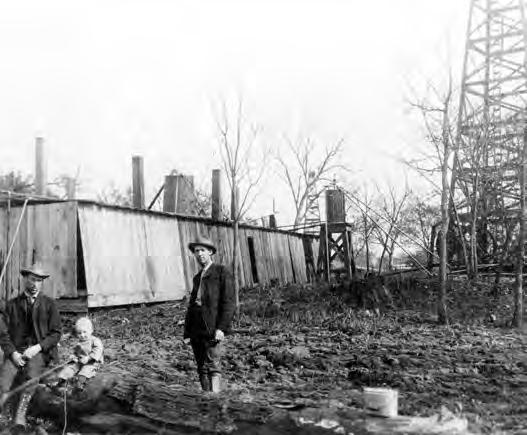
On Thursday, August 24, two company airplanes left New Jersey for Oklahoma. One of the DC-3s carried Frank and Angel while the other transported John and Mary Kate. Shortly after arriving in Bartlesville at 2 p.m., a stretcher carrying Frank’s body, covered with a white sheet, was loaded into a hearse from Neekamp Funeral Home. A procession of cars, many carrying local officials and dignitaries, followed behind as the hearse proceeded through downtown. Flags were at half-staff and chimes played from the First Presbyterian Church.
Mayor E.S. Dunaway proclaimed Friday, August 25 a day of tribute to Frank Phillips “in recognition of his vision, industry, and public spirit.” Thousands streamed through the funeral home chapel to pay their final respects. Frank’s body lay in a seamless copper casket especially made for him and identical to the one made for his wife, Jane, who passed away on August 31, 1948, just one week shy of her seventy-first birthday. A basket of hand-picked flowers from Frank’s beloved Woolaroc Ranch southwest of Bartlesville was included in the floral offerings that banked the casket.
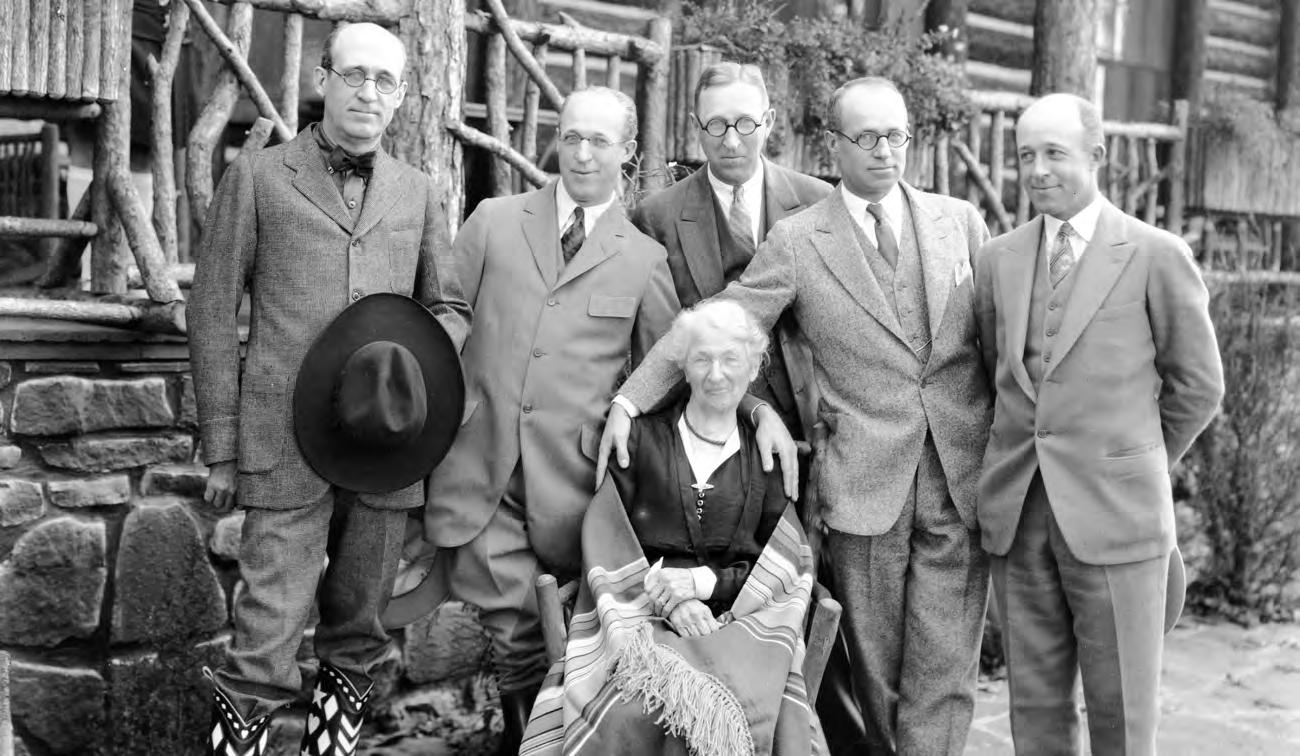
News reports and editorials about Frank Phillips’ passing stretched from coast to coast. The Fort Worth StarTelegram wrote that “The career of Frank Phillips could have occurred only in democracies like America where the exceptional man gains exceptional rewards and does exceptional good with his wealth. The story of Frank Phillips should be broadcast behind the Iron Curtain as a shining example of the opportunity and fulfillment in democracy and its free system.”
Boots Adams said, “The death of Frank Phillips is a great loss to all of us who knew him and worked with him. It means a loss of a warm, personal friend. His life exemplifies the best American traditions. By his own initiative he founded Phillips Petroleum Company and became a great leader in American industry. He had the gift of acquiring; the wisdom of giving . In his private life he was known for his humanitarianism and his deep understanding and warm appreciation of people. Frank Phillips’ life is an inspiration to us all.”
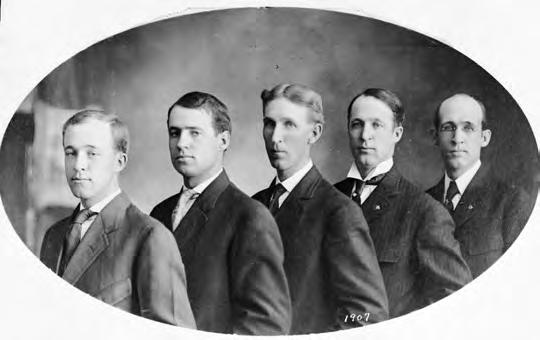
More than 500 floral offerings and more than 2,000 telegrams from all over the world were r eceived by the family. Touched by the outpouring of affection and in keeping with Frank’s philanthropic spirit, the Phillips family announced that donations could be made to the Jane G. Phillips Memorial Hospital, which was to be built in a tribute to “Aunt Jane.”
On Saturday, August 26, crowds began to gather around the family home at 1107 Cherokee Avenue two hours before the funeral service. All Bartlesville businesses were closed out of respect for the town’s benefactor. Some even had hand-written signs that read: “Closed for Uncle Frank.” Doctors were only accepting emergency patients. Phillips Petroleum facilities everywhere were ordered closed for 24 hours except for emergency departments with minimum staff.
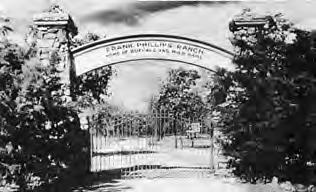
When it came time for the 2 p.m. service to begin, more than 3,000 people overflowed the lawn and streets around the home. Three extra units of the Oklahoma Highway Patrol were assigned to assist and divert traffic. An honor guard of 200 Boy Scouts escorted Frank’s body from the funeral home to the family residence. Atop the brand new 12-story Adams Building downtown, an electric carillon played the hymn “Rock of Ages.”
The casket was placed in the home’s library just to the left of the front entrance on the first floor, the same exact spot Jane’s casket had been placed two years earlier. Gathered inside were 55 relatives and 200 close friends including Bill Skelly of Tulsa-based Skelly Oil Company and pilot Art Goebel whose non-stop flight to Hawaii was financed by Frank. Loud speakers on the front lawn enabled those outside to hear final rites read by Rev. James E. Spivey of the First Presbyterian Church. The throng included young and old, rich and poor, and hundreds of children including boys and girls in a maze of blue, khaki, and green Scout uniforms. And somewhere was an elderly priest from Fairfax whose welfare benefits had been paid by Frank since 1934.

A quartet that performed at Jane’s funeral sang “Shall We Gather at the River.” Singing “The Lord’s Prayer” was Gerald Tucker, an Olympian, All-American basketball player, and Phillips 66er.
“To recount the benevolence and achievements in detail would take the remainder of this day,” said Rev. Spivey. “And would not be the desire of the one in whose memory we gather. Rather, let us dedicate our lives to making this community, yea, this world in which we live, one in which the fruits of his benevolences shall be completely realized.”

Rev. Spivey reminded everyone how Frank was fond of saying that money is no good unless you have character and stability with it. “It was with this philosophy that he sought to invest in the lives of children and young people so that the material might be transformed into the making of a higher citizenship.”
Throughout the brief 35-minute service, only tender weeping and the rustle of trees could be heard. Mourners were stunned into silence as they realized a man who had meant so much to so many for almost half a century…was gone.
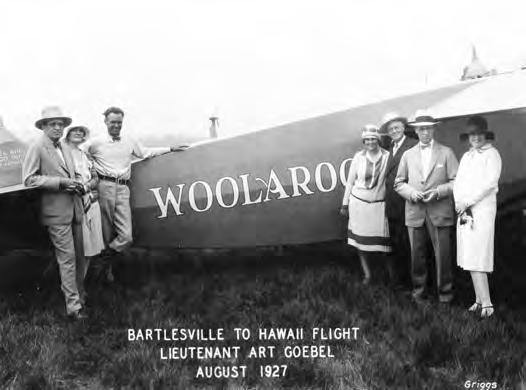
Frank left behind a son, two foster daughters, eight grandchildren, two great-grandchildren, two sisters, and three brothers, including Waite who weeks earlier had traveled from California to New Jersey just to see his big brother. Neither one knew it would be for the last time.
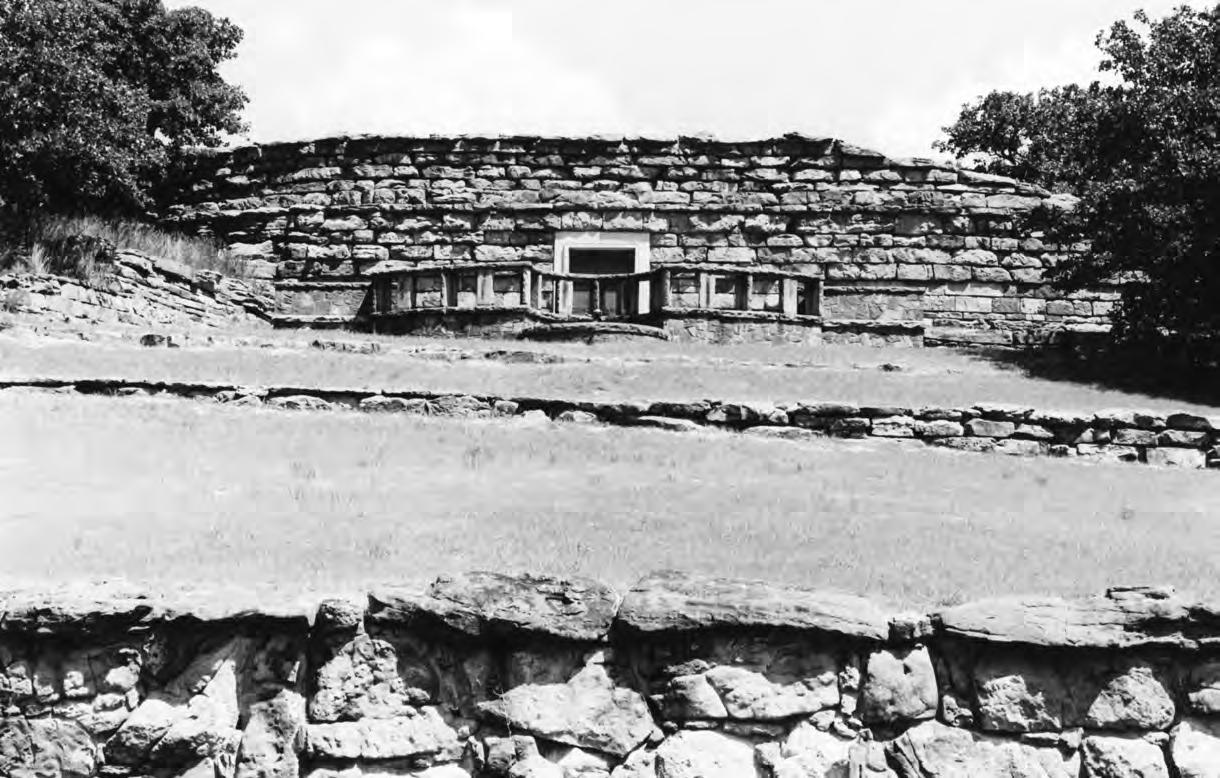
Despite the mid-afternoon heat, Waite shivered as Frank’s casket was gently slipped into the funeral home hearse. He couldn’t bear to watch any longer. “There goes my best friend – I loved him so much.”
The Adams Building carillon played “Jesus, Joy of Man’s Desiring” as a 20-car cortege escorted by the Oklahoma Highway Patrol headed toward Woolaroc.
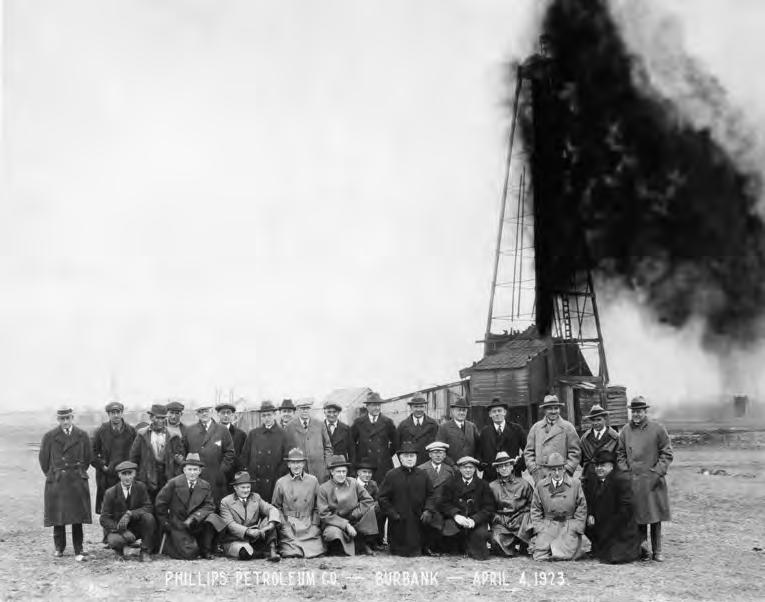
Even before Jane’s death, Frank had selected a specific spot at Woolaroc to serve as their final resting place. After his wife’s death, Frank’s singular focus was to construct a mausoleum on that very spot. He was inspired by the memorial built for his dear friend Will Rogers of Claremore, and made many trips there to get ideas for the mausoleum. Additionally, he wanted it to be close to the lodge and museum, but have it blend into the natural landscape so as not to be readily obvious. Construction of the 24-square-foot room, which required blasting through 18-feet of solid rock, took about one year. When it was finished, it featured bronze doors, a rotunda with eight 10-foot columns made of Italian marble, and mosaic tile-covered walls. It even had air conditioning and a telephone, “just in case.” Once the mausoleum was finished, Frank had Jane’s casket transferred from White Rose Cemetery to Woolaroc, and a brief memorial service was held.
When asked what he considered his greatest achievement, Frank didn’t hesitate. “Our gasoline line from Borger (TX) to St. Louis. For three reasons. First, I built it during The Depression when Wall Street said it couldn’t be done; second, it was paid for during The Depression; and third, it saved the life of the company. Our retail stations in the Middle West could sell our gasoline and make their profit at a quarter of a cent less than other stations could buy it wholesale. That gave us the business.”
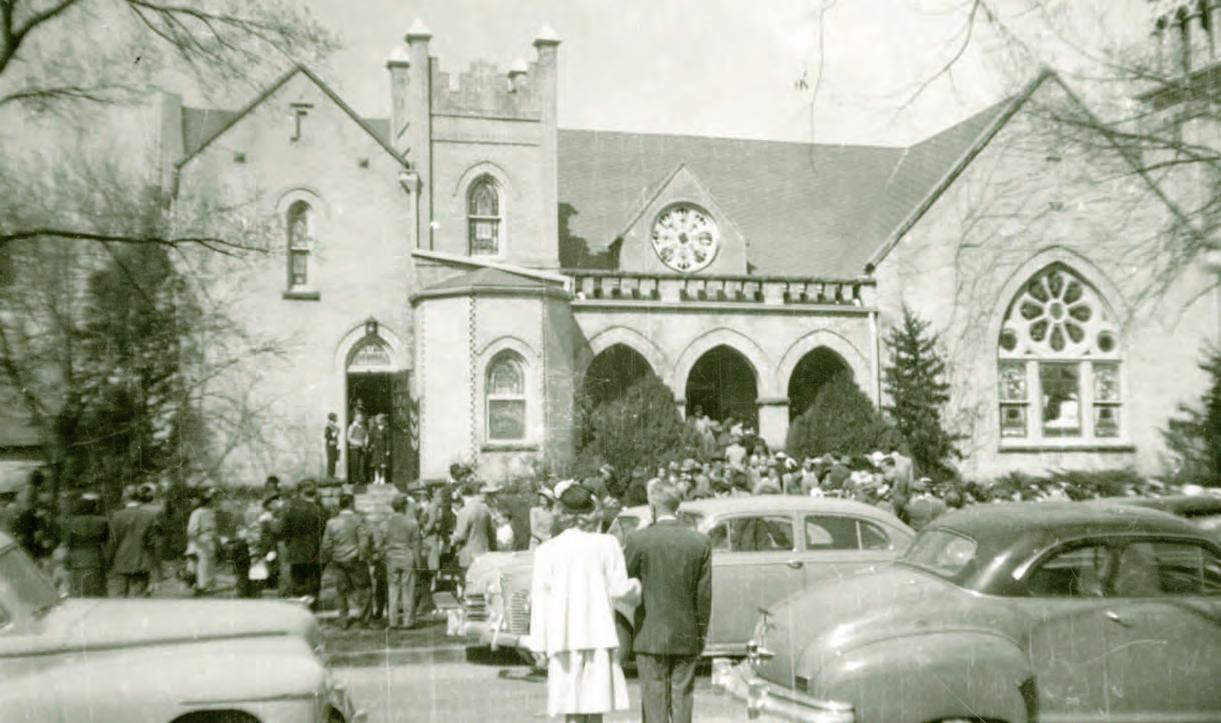
However, it could easily be argued Frank’s greatest achievement was his philanthropy. Only about $8 million of his estimated fortune, once estimated to be five times that much, remained at his death. The greater part of his wealth was disclosed to have been given away before he died. Approximately one half of the remaining wealth was left to the Frank Phillips Foundation, which today is a non-profit organization governed by a board of trustees that oversees Woolaro c and the Frank Phillips Historic Home. The other half was distributed to family, friends, and employees, mainly in stock in the Phillips Investment Company, the family’s personal holding company.
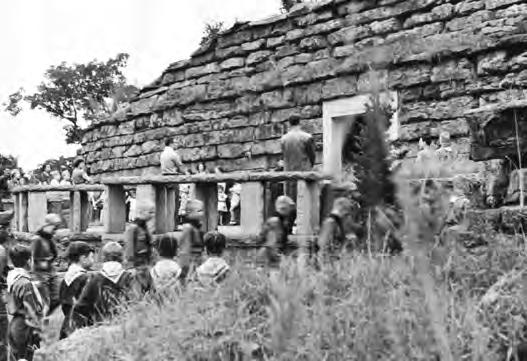
It was often said that Uncle Frank would be running the company long after his passing. By that it was meant that the methods of operation he initiated would continue on down through the history of the company b ecause they were so thoroughly taught to the young men he was training to take his place.
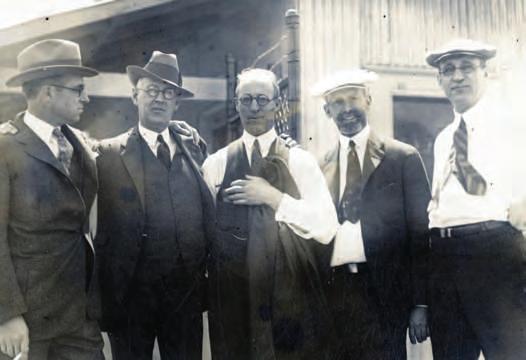
One could argue that Frank’s methods of benevolence and altruism that he initiated 103 years ago continue in Bartlesville today because of the example he set for others to step in and take his place.











